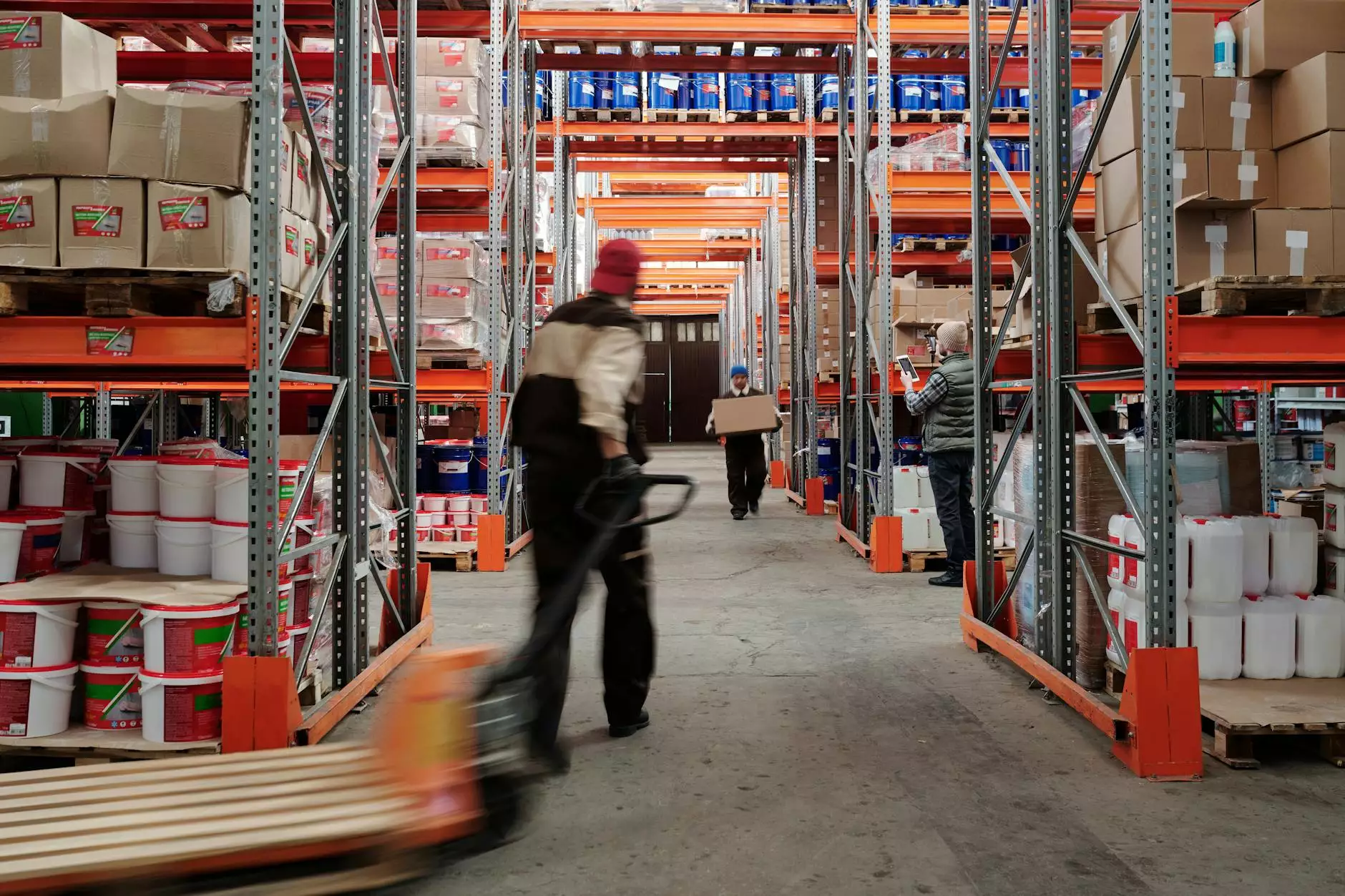Box Truck Logistics: Your Comprehensive Guide to Efficient Transport Solutions

In the ever-evolving landscape of logistics, undertaking efficient transport solutions is paramount for success. One such solution that has gained immense popularity is box truck logistics. This logistics strategy is not only cost-effective but also provides flexibility, reliability, and efficiency in moving goods. In this article, we will delve into the intricacies of box truck logistics, exploring its benefits, best practices, and how it can transform your business operations.
What is Box Truck Logistics?
Box truck logistics refers to the transportation of goods using box trucks, which are characterized by their enclosed cargo areas. These trucks can vary in size and loading capacity, making them versatile options for transporting a wide range of products. Typically, box trucks are used for local deliveries, furniture transportation, parcel services, and freight shipping, among other applications.
Benefits of Box Truck Logistics
The growing popularity of box truck logistics can be attributed to several significant benefits:
- Versatility and Flexibility: Box trucks can accommodate various cargo types, from fragile items to bulk products, making them suitable for diverse industries.
- Cost-Effectiveness: Compared to larger freight carriers, operating box trucks often involves lower ownership costs, which means savings for your business.
- Accessibility: Box trucks can easily navigate urban environments, allowing for efficient loading and unloading in tight spaces.
- Improved Delivery Times: With their ability to handle local deliveries effectively, box trucks can reduce transit times, enhancing customer satisfaction.
- Simplicity in Operations: Operating a box truck generally requires fewer permits and regulations compared to larger commercial trucks, making logistics management easier.
Key Components of Box Truck Logistics
To fully understand how to implement effective box truck logistics, it is essential to consider various components that contribute to successful operations:
1. Fleet Management
Efficient fleet management is crucial for optimizing box truck logistics. This includes:
- Regular maintenance schedules to ensure vehicles are in top condition.
- Implementing GPS tracking for real-time monitoring of truck locations.
- Data analysis to predict maintenance needs and improve routing efficiency.
2. Route Optimization
Optimizing delivery routes helps in:
- Reducing operational costs by minimizing fuel consumption.
- Cutting down on delivery times, which enhances customer experience.
- Improving the overall efficiency of logistics operations.
3. Cargo Management
Proper cargo management ensures that items are loaded, secured, and unloaded efficiently. Key practices include:
- Training staff on proper loading techniques to prevent damage.
- Utilizing load tracking technology to maintain visibility over shipments.
- Ensuring compliance with safety regulations during loading and unloading.
Implementing Box Truck Logistics in Your Business
When considering incorporating box truck logistics into your operations, keep the following steps in mind:
Step 1: Assess Your Logistics Needs
Evaluate your current logistics processes and identify areas for improvement. Determine if box truck logistics can fill gaps in your service offerings or enhance efficiency.
Step 2: Choose the Right Size and Type of Box Truck
Select a box truck that fits your delivery requirements. Consider factors such as:
- Cargo capacity needed for your deliveries.
- Types of goods you will be transporting.
- Accessibility requirements in urban areas.
Step 3: Develop a Delivery Schedule
Create a structured delivery schedule that optimizes your routes and ensures timely deliveries. Consistency in delivery times can significantly enhance customer satisfaction and trust.
Step 4: Train Your Team
Equip your drivers and logistics team with the necessary training. This includes safe driving techniques, best practices for loading and unloading, and customer service skills.
Step 5: Invest in Technology
Utilizing technology can streamline box truck logistics. Consider integrating:
- Fleet management software to oversee vehicle conditions and performance.
- Route planning tools for efficient delivery management.
- Communication tools for team coordination and real-time updates.
Box Truck Logistics and Sustainability
In today’s world, sustainability plays a crucial role in business operations. By adopting box truck logistics, companies can take steps towards more sustainable practices:
- Reduced Carbon Footprint: Smaller trucks generally consume less fuel, leading to lower emissions compared to larger freight vehicles.
- Local Deliveries: Focusing on local deliveries minimizes the need for long-distance transportation, reducing the environmental impact.
- Efficient Routes: Optimization can lead to reduced fuel consumption and overall resource savings.
Challenges in Box Truck Logistics
While box truck logistics offers numerous benefits, there are also challenges that businesses may face:
1. Traffic and Urban Regulations
Delivering goods in urban areas can be complicated due to traffic congestion and strict regulations regarding delivery times. Proper planning and scheduling can mitigate these issues.
2. Driver Shortages
The logistics industry is currently experiencing a shortage of qualified drivers. Offering competitive wages and benefits, along with a positive work environment, can help attract talent.
3. Variable Demand
Managing workload fluctuations requires agile logistics planning. Seasonal demand can cause difficulty in ensuring adequate delivery capacity.
Future Trends in Box Truck Logistics
The logistics industry is in constant flux, and several trends will shape the future of box truck logistics:
1. Automation and Technology Integration
Advancements in technology, such as automation in routing and even autonomous vehicles, will streamline logistics operations further. Embracing these technologies can enhance efficiency and reduce costs.
2. E-Commerce Growth
With the rise of e-commerce, the demand for quick and efficient local deliveries will continue to increase. Box truck logistics is well-suited to meet these growing expectations.
3. Focus on Customer Experience
As competition intensifies, businesses will increasingly focus on enhancing the customer experience through real-time tracking, personalized services, and reliable deliveries.
Conclusion
In conclusion, box truck logistics represents a highly effective and adaptable solution for modern businesses seeking efficient transport options. With its many benefits, including cost savings, operational efficiencies, and the capacity to support sustainability initiatives, it is a logistics strategy worth considering. By understanding the complexities and best practices involved in implementing box truck logistics, companies can position themselves for success in a continually changing market. Embrace the power of logistics and elevate your business operations today with the strategic adoption of box truck logistics.
For more information on optimizing your logistics operations and exploring box truck logistics solutions tailored to your business needs, visit logitydispatch.com.









